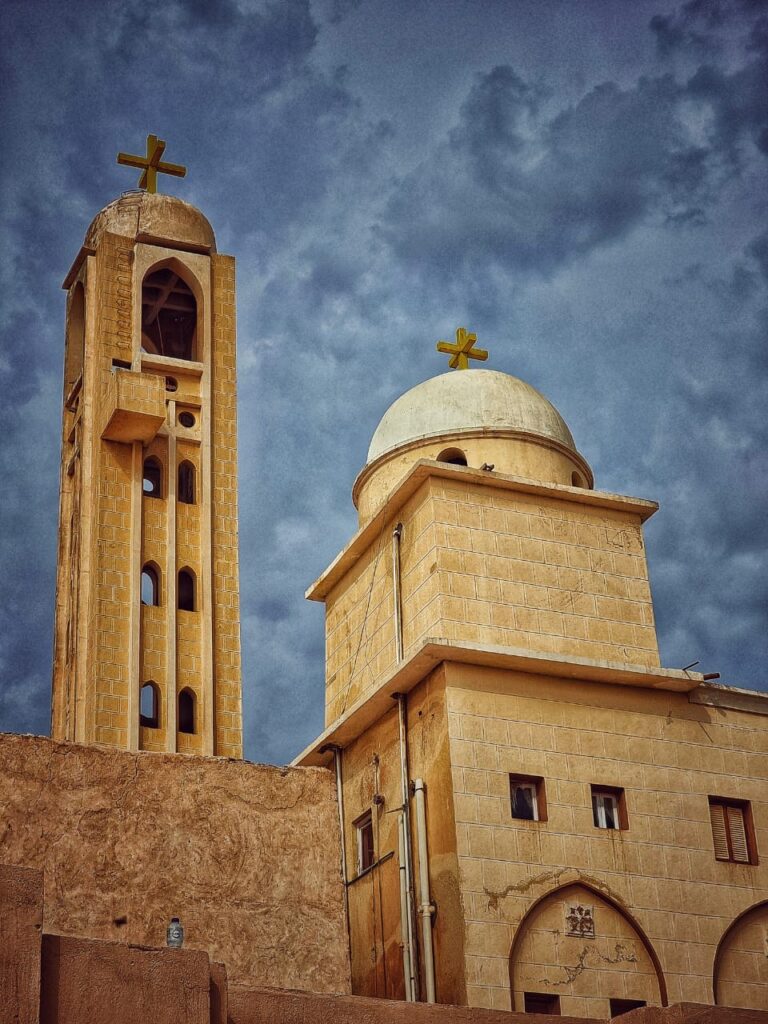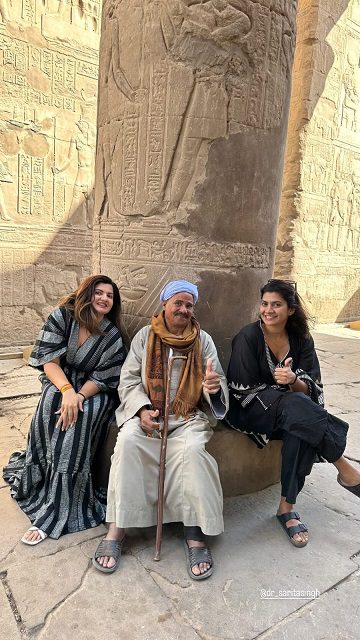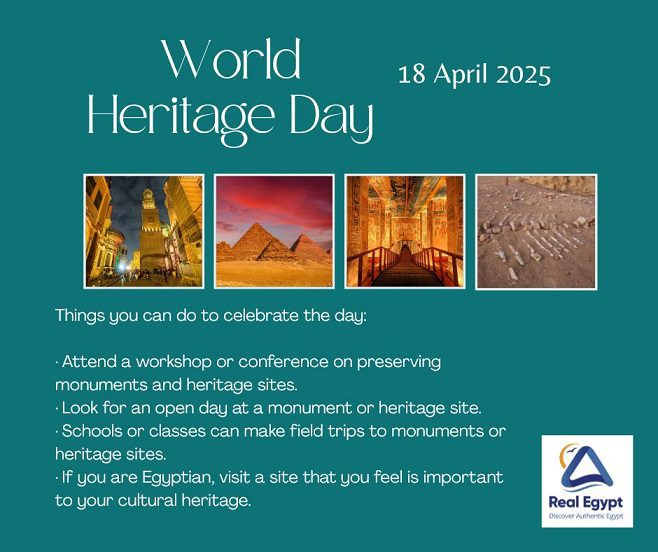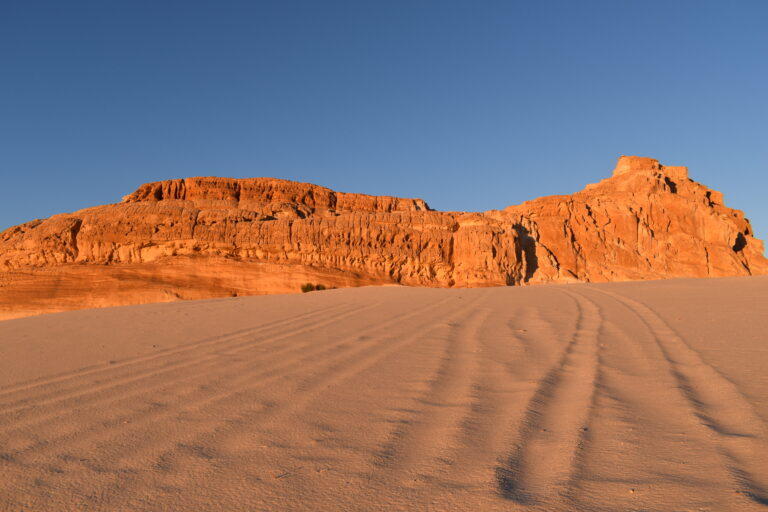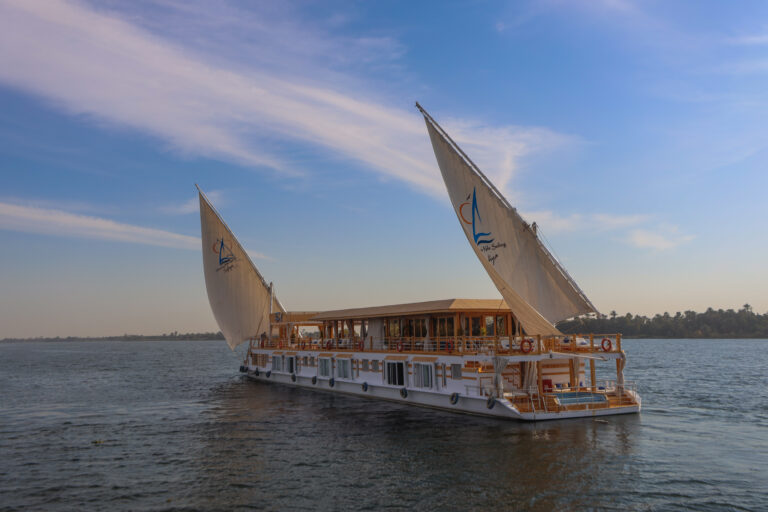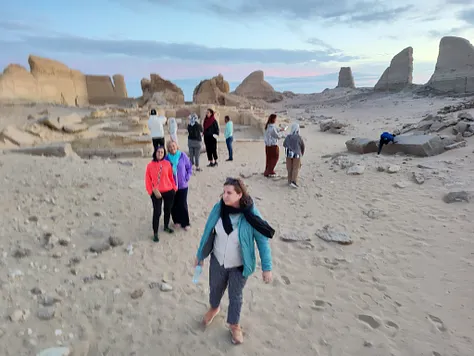experience this special month with us
Ramadan is undoubtedly one of the most vibrant times to visit Egypt. There is a festive atmosphere in every street and alley, with decorative lights, streamers tinkling in the breezes, lanterns in doorways and at windows.
In addition to devoting more time to spiritual practices, people come together to break their daily fast and to enjoy the evenings.
WHAT IS RAMADAN?
Ramadan (also known as Ramadhan or Ramzan) is the ninth month in the Islamic calendar. For followers of Islam, this is a holy month. The first verses of the Qu’ran were revealed to the Prophet Muhammad during the last third of Ramadan, making this an especially holy period.
More than two billion people worldwide follow the same daily schedule, according to their time zones. It is a month of spiritual reflection and increased religious devotion, fasting, self-discipline, charity giving, self-examination, and self-accountability.
Fasting during Ramadan is one of the Five Pillars of Islam. From sunrise to sunset Muslims fast: from eating, drinking, smoking, lies, abusive language and fulfilling physical desires and other actions that go against the principles of Islam.
Ramadan is also a time for many to donate to charity through food drives for the poor, organizing a collection or charity event, and other voluntary activities.
The aim is to be in control of the body and reflect on the blessings of life.
Some people are exempt from fasting, including the chronically ill, mentally challenged, and the elderly who cannot participate for health reasons.
Reading of the Qur’an often during Ramadan is encouraged. Muslim men recite the entire Qur’an by the end of Ramadan through special prayers known as Tarawih, held in the mosques every night of the month, during which a section of the Qur’an is recited.
Instead of sleeping, people stay up late for prayers and reflection, however the evenings are also a time of enjoyment.
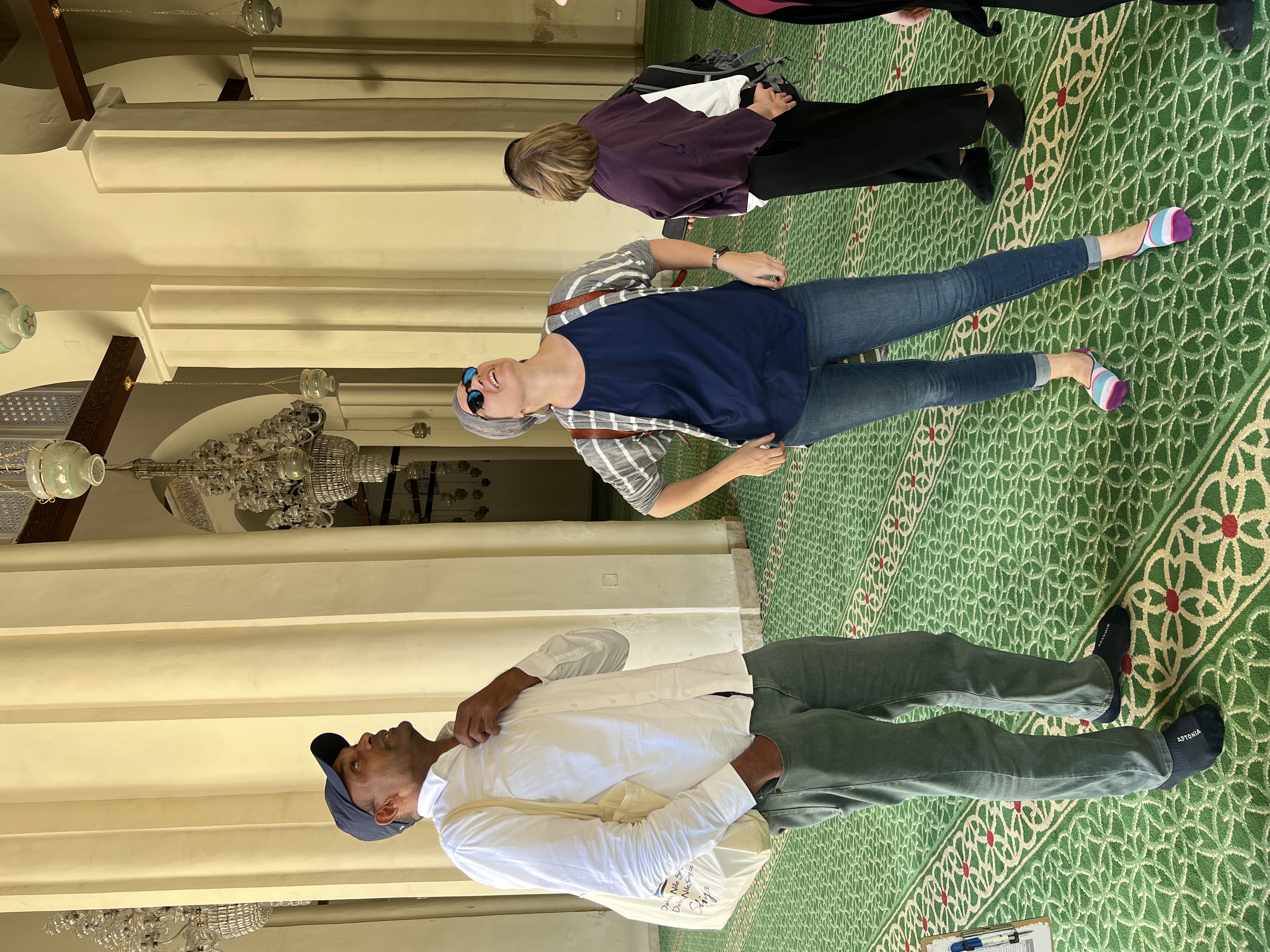

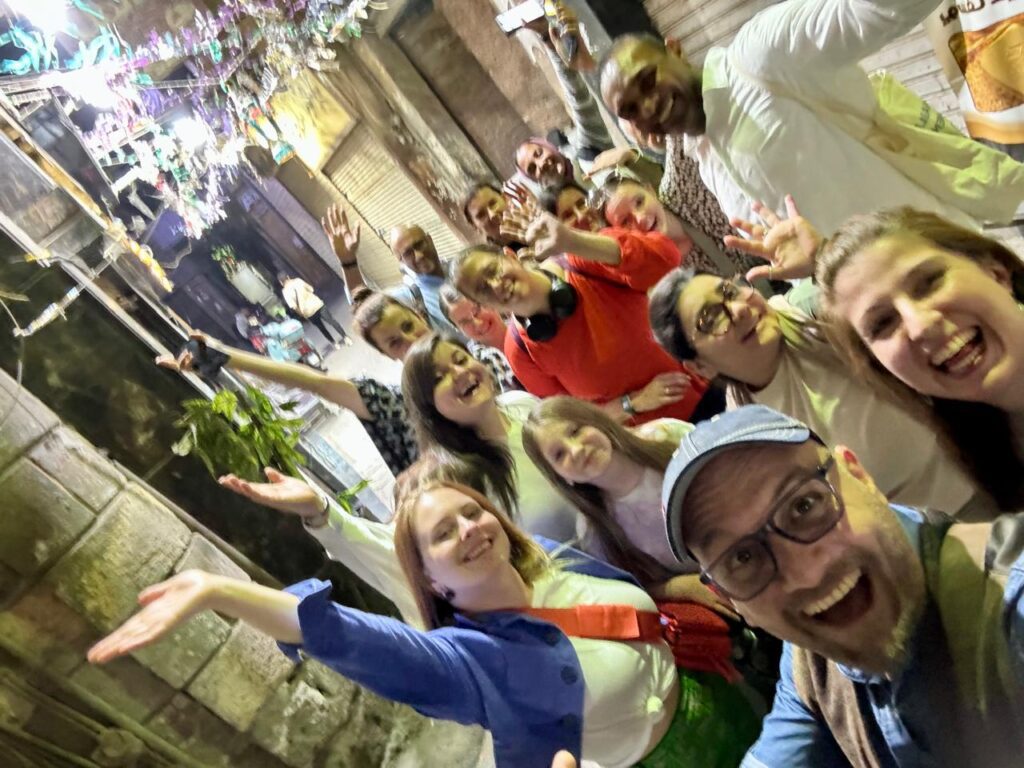
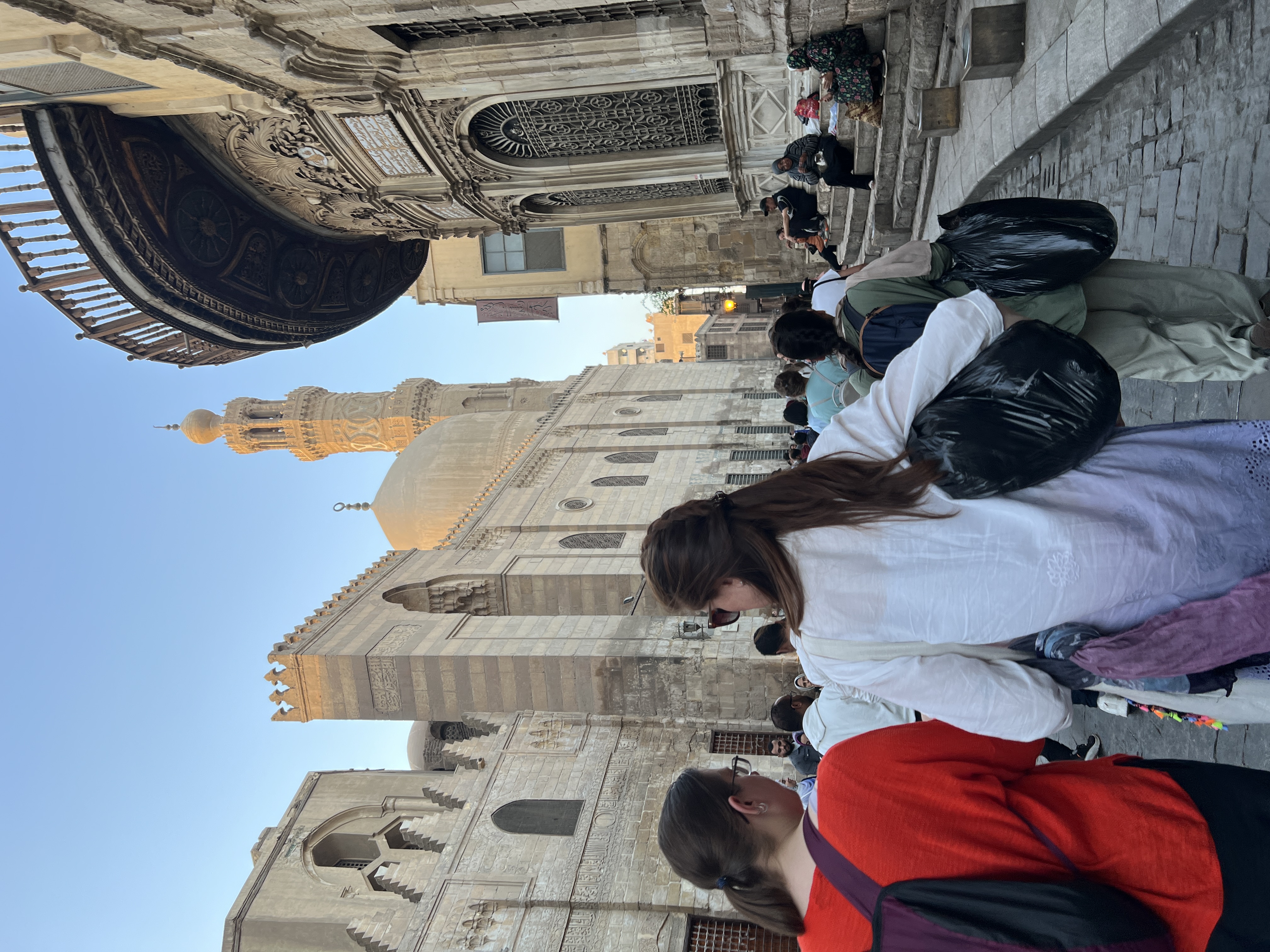
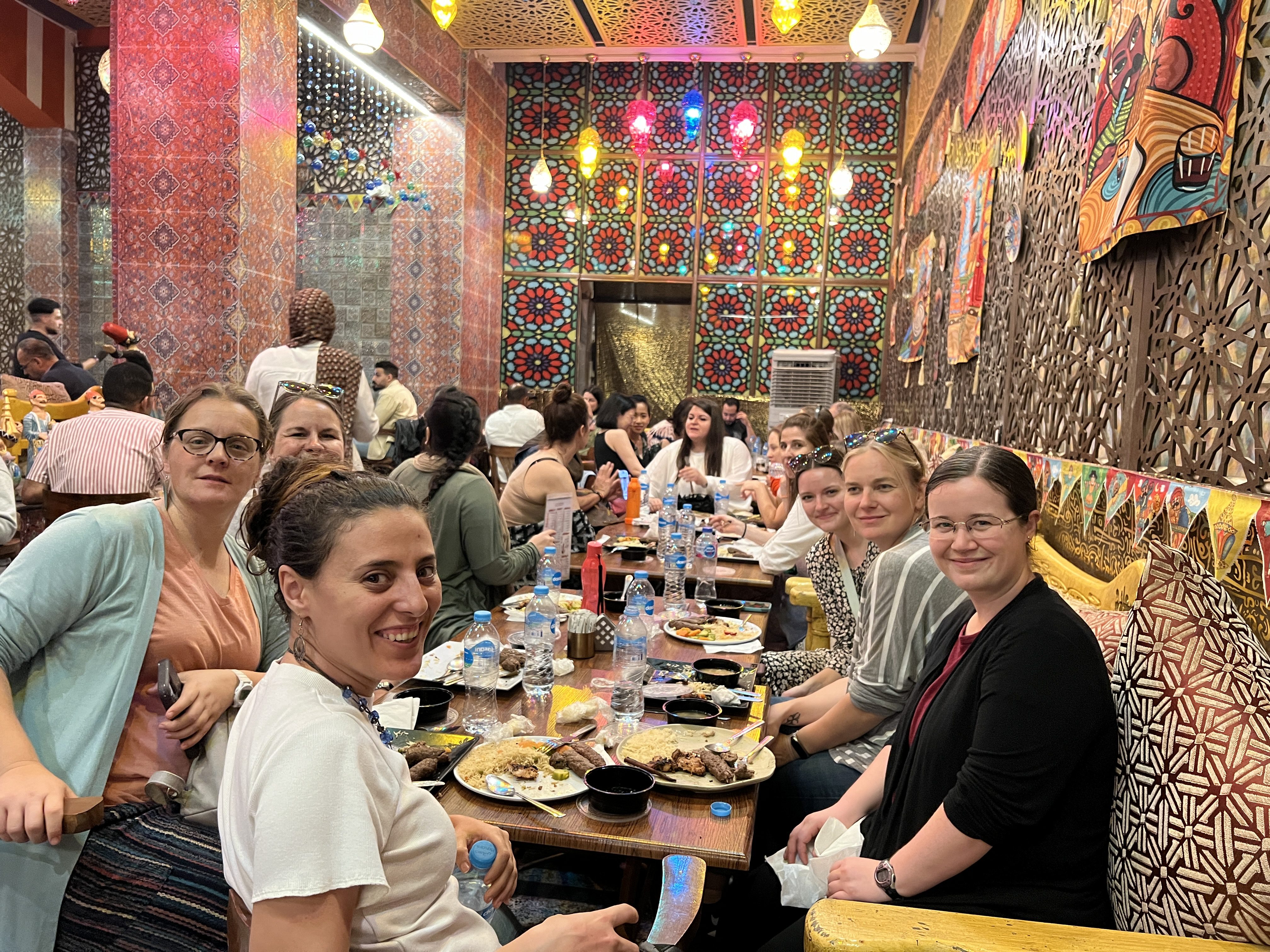
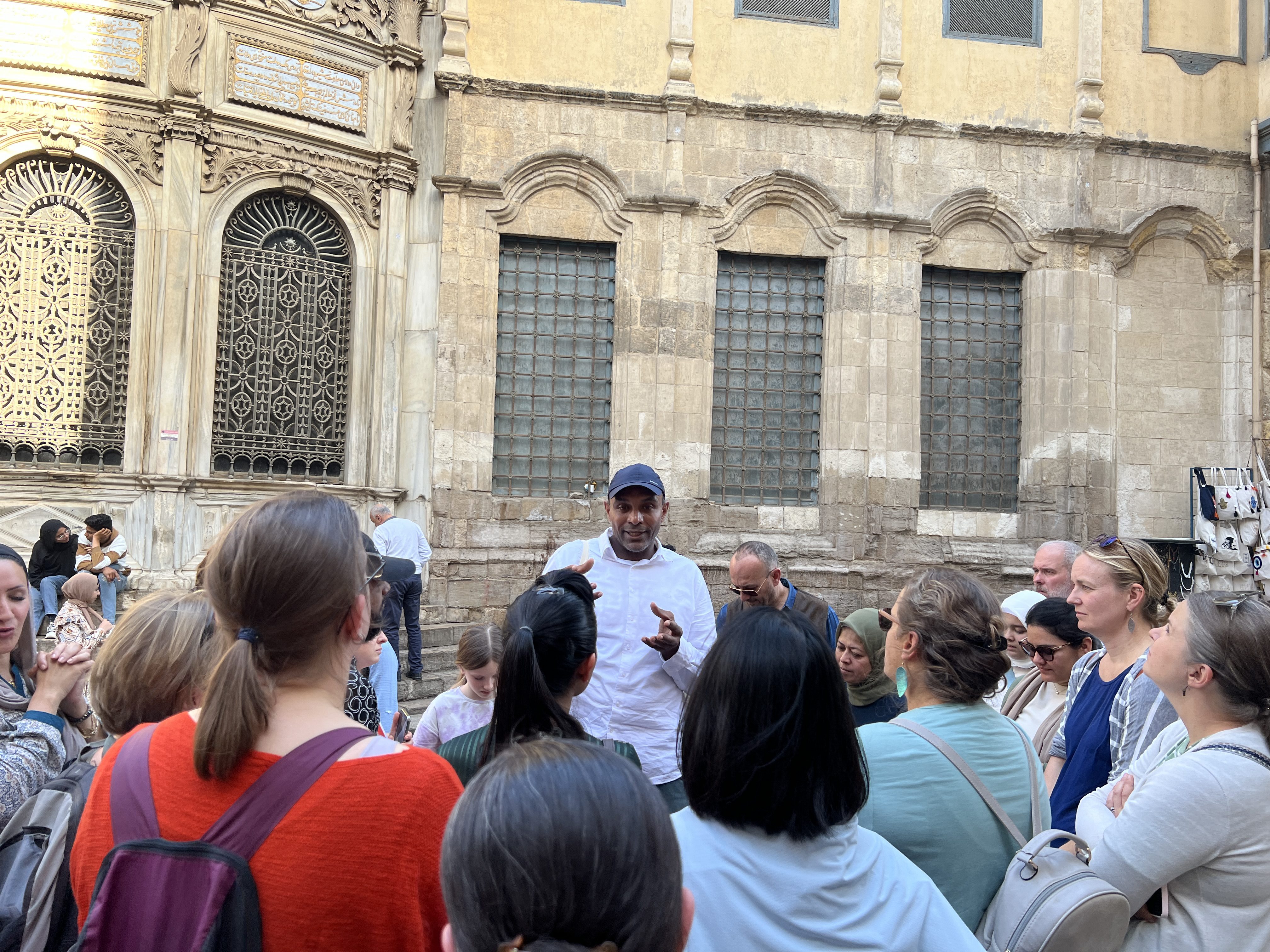
Guests on our Ramadan tour of Islamic Cairo
Ramadan etiquette and desirable practices
- Preparing for the month.
- Bringing to mind the bounty of Allah (God).
- Purifying one’s intention.
- Pre-dawn meal (suhur) as late as possible.
- Not unnecessarily delaying the breaking of the fast.
- Performing salat al-Maghrib soon after breaking the fast, then returning to eat.
- Making du`a (prayer of invocation, supplication or request, asking help or assistance from Allah) at the time of breaking the fast.
- Enabling others to break their fasts.
- Abstaining from all forbidden deeds.
- Maintaining a pleasant disposition.
- Abundant reciting of the Qur’an.
- Abundant charity. Charity is an obligation of Islam at all times, but the focus on this increases during Ramadan.
- Performing tarawih prayers, which are held in the mosques every night of the month, during which a section of the Qur’an is recited.
HOW IS RAMADAN CELEBRATED and HOW CAN YOU EXPERIENCE THIS?
In Cairo a cannon located in the Citadel of Salah el-Din announces the start of Iftar, the breaking of the fast, by firing at sunset. In other cities a cannon may be fired or the call from mosques brings people together.
Just before sunset people go to the place where they will break their fast, this may be at home with family and friends, in restaurants. Iftar is meant to be shared with family and friends. There are also many community gatherings throughout Egypt where tables are set in the street and those who cannot make it home for iftar can break fast together. Community tables also provide for those who are limited financially.
Iftar starts with juice or milk with dates, to prepare the stomach for the larger meal. The meal may include soup, a variety of appetizing dishes and a main course. The meal may be followed by a sweet dessert or sweets will be eaten later as the evening progresses. Another meal will be eaten early the following morning before fasting begins again.
Traditional Ramadan dishes include mahshi (stuffed vegetables with rice), rokak, (stuffed pastry with minced meat) molokhia (a delicious soup) and keshk (a savoury dish with flour, chicken, oil, and yoghurt). Desserts include Um Ali (bread pudding), basbousa (semolina cake with yoghurt) and qatayef (a sweet pancake, filled with cream or nuts).
For vegetarians there are equally delicious Ramadan foods, for examples – these are not all Egyptian but are also eaten in Egypt – see Vegetarian Ramadan Recipes from the Middle East
There are also some Ramadan foods specific to certain area or people. For example, Nubian artist Gamal Latif has written about Gargabida, the Nubian bread that is baked specially in Ramadan. “It consists of wheat flour, yellow corn, a little salt and water in a clay pot. It is left for a week, stirring every day until it ferments. After a week, it is diluted with water and then baked on a baking tray. It is very thin. We take a little of it and crush it between our palms and add it to any type of fresh juice. It has countless benefits. The villagers gather before sunset and break their fast after sunset in front of the mosque, and everyone walking in the street at this time breaks their fast with us.”
During the evening people also enjoy Suhur / Suhoor, more eating and drinking which depending on financial status can be simple or an elaborate, expensive evening with entertainment in the major hotels and decorated tents in the larger cities.
The traditional Ramadan lantern, the fanous, is used during the holy month as a decorative symbol that goes back to the Fatimid conquest (in another post during the month we will share the history of the fanous).
TV series are made specifically for Ramadan screening, 30 or 15 episodes with one episode screened each evening. Many families and friends watch these together and some series are addictive, they cover everything from dramas set in the past to contemporary life. Some of the series set in past decades are an excellent insight to life in different levels of society, not a mobile phone, computer or other modern conveniences in sight but instead they show in great detail how people lived, dressed, their occupations, what they ate, and their entertainments. While these series are in Arabic, many appear months later on YouTube or Netflix with subtitles in English so you can enjoy them and see some of the locations in Egypt that you may have visited or will visit on tour here.
Ramadan nights offer a wide variety of entertainments and activities in Cairo and other cities, and El Muizz Street in Islamic Cairo is especially vibrant during Ramadan.
We offer a tour in Cairo during one afternoon to evening, our guests learn about the historic mosques and other significant architecture in the area, then enjoy an iftar meal and entertainment.
If you are booking a tour with us and the dates coincide with Ramadan or Eid (the three days celebration at the end of Ramadan), ask our Travel Advisors about including some Ramadan activities in your tour evenings.
Business hours change slightly during Ramadan, as do the opening hours of the main tourist attractions, but we organize your tour so you can still see all the essential sights Cairo.
During Ramadan we will post more about traditions including the lanterns, Laylat Al-Qadr, and at the end of the month the celebrations of Eid ul Fitr.

